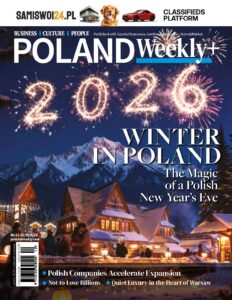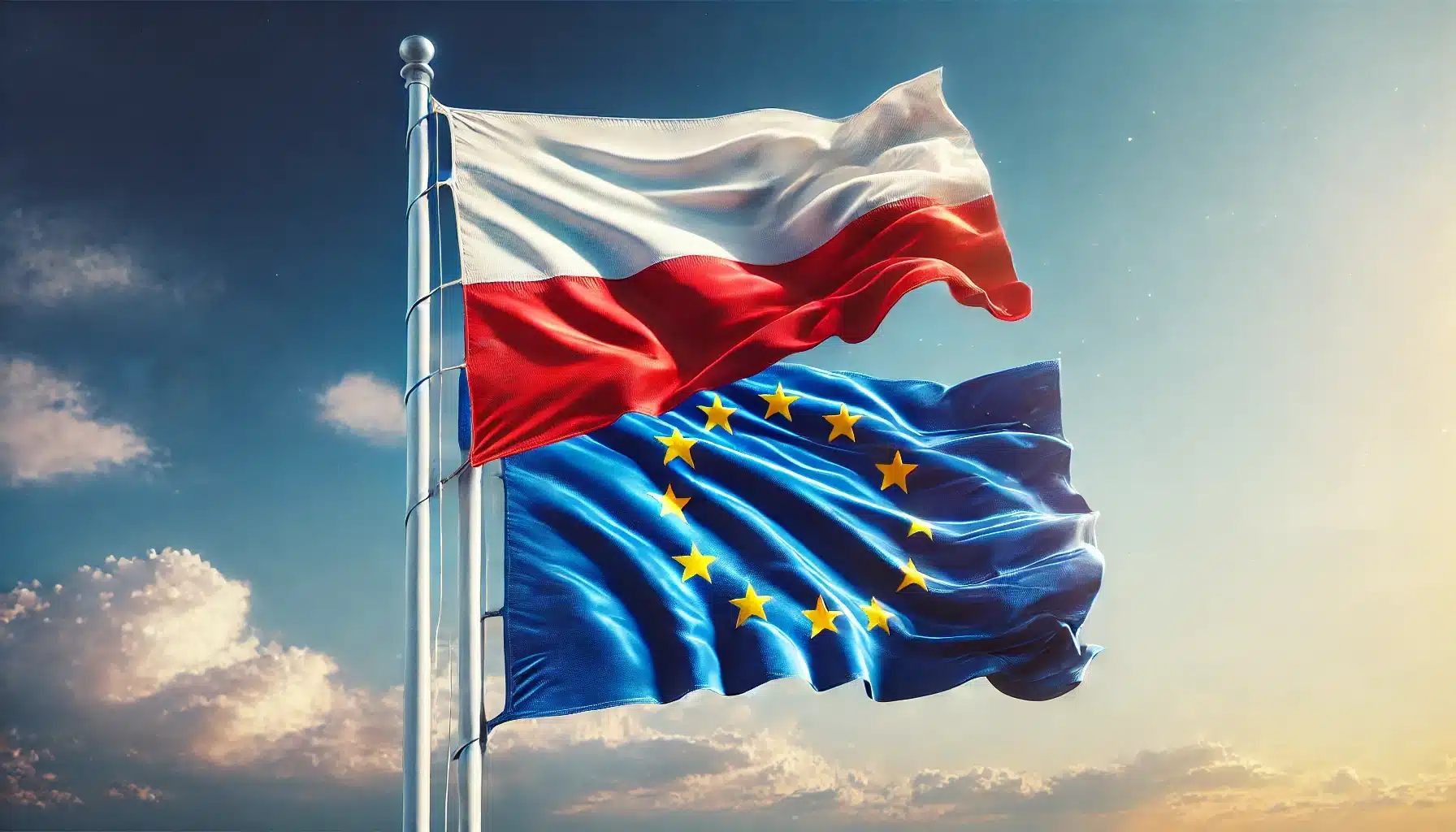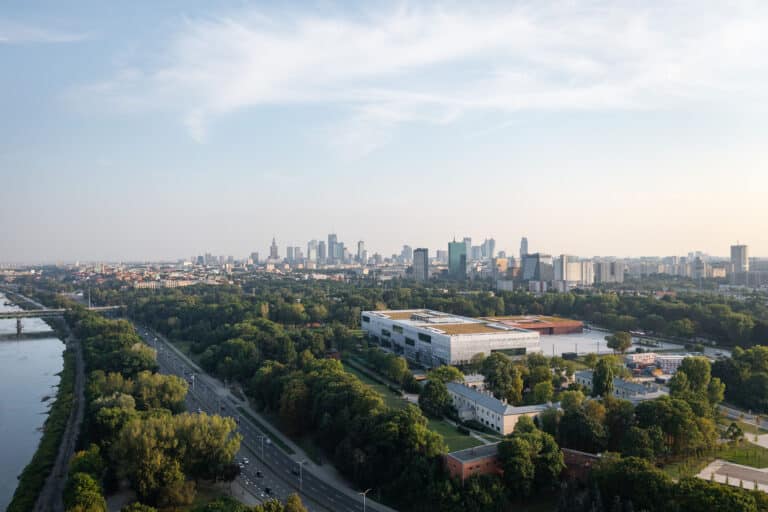Poland’s EU Presidency
On January 1, Poland assumed the presidency of the EU Council, stepping into a pivotal role at a time when Europe faces critical challenges. This presidency is not only a significant responsibility but also an opportunity for Poland to shape the EU agenda and assert its perspective on key issues such as security, competitiveness, and unity. Dr. Małgorzata Bonikowska, President of the Center for International Relations Foundation, shared her insights on Poland’s goals and the broader implications of its leadership.
Recently, your foundation prepared the “Better Europe” report for the European Commission. What inspired the creation of this report?
The European project has evolved over 70 years, but it’s far from finished. This project is still ongoing. After 20 years as an EU member state, Poland has much to contribute to this discussion and vision, offering valuable insights and proposals. Many voices are already striving to address and improve the functionality of the European Union today.
We can achieve significant progress without amending the treaties, working within the legal frameworks already in place. However, until now, the major discussions have been centered in the core of Europe. Poland, especially now as it assumes the presidency of the EU Council for the second time—following its first presidency in 2011, which was widely recognized as successful—has a unique opportunity to assert its voice in this dialogue.
It is an opportune moment for Poland to make its voice heard in shaping the EU’s direction. While much of the groundwork for this discussion has already been laid, it is now crucial to move beyond dialogue and take meaningful action. Poland’s presidency is an opportunity to bring our voice to the table.
The report mentions gaps in Mario Draghi’s recommendations. Could you elaborate?
It is somewhat surprising that the European Commission commissioned and funded two significant reports but chose only two Italians to author them.
One report, authored by Letta, focused on the single market, while Mario Draghi prepared a report on competitiveness. These are substantial documents with important insights for the new Commission and other EU institutions. However, it is striking that the perspectives presented are predominantly those of the core EU countries—particularly Italy.
Why were there no contributors from Central and Eastern Europe or from countries that joined the EU later? To address this imbalance, we decided to present our own report, Better Europe. This report is the result of a collaborative effort by a diverse group of experts, including EU specialists, lawyers, economists, and political scientists like myself.
We aimed to explore different aspects of EU functioning, particularly in the sections on economics, markets, and competitiveness. This segment of the report takes a somewhat critical view of Draghi’s findings, identifying areas where his report falls short. For instance, it places insufficient emphasis on small and medium-sized enterprises (SMEs), which form the backbone of many economies, including those in Central and Eastern Europe.
Our perspective is naturally different because our economies truly began to transform only after 1989, when countries from the Eastern Bloc shifted to fully-fledged, open-market economies. This transformation built economies that heavily rely on small and medium-sized enterprises (SMEs), with even larger companies being relatively young compared to their Western counterparts. As a result, our approach is inherently more open to innovation and adaptability.
Poland, for instance, has emerged as a significant fintech hub, with many innovative services now serving older EU partners. This dynamism stems from a creative energy often attributed to Poland—captured in the description by a British expert who called it a nation of “creative tension.” This creativity helps Poland adapt effectively to today’s unpredictable and unstable realities, often better than the traditional, regulation-heavy approaches of Western EU countries.
This perspective was notably absent in Mario Draghi’s report, which predominantly focused on the experiences of long-established, large corporations in core EU nations. Draghi’s analysis did not adequately account for the potential contributions of newer member states like Poland, which bring fresh energy and a shorter—but highly transformative—experience in capitalism.
Poland and other countries from Central and Eastern Europe remember difficult times and have developed the ability to thrive in challenging, often hostile environments. This resilience and creativity could significantly benefit Europe as a whole, particularly as the EU faces increasing competition from global players.
Europe’s core countries often emphasize regulations, bureaucracy, and traditional planning, which worked in more predictable eras. However, today’s realities demand agility, flexibility, and the willingness to embrace uncertainty. This is where Polish creativity and adaptability offer valuable lessons. Businesses today need to be resilient and competitive—qualities Eastern Bloc countries have honed during their rapid transformation.
The historical context also plays a role. In Western Europe, prosperity arrived much earlier, leading to a more relaxed approach, akin to ancient Rome in its golden era—wealthy and complacent. In contrast, countries like Poland, Croatia, and others that joined the EU later remain hungry for progress. We don’t take success for granted, and we actively strive for a better future.
This hunger and energy are precisely what Europe needs now, especially when facing fierce competition from Asia and the United States. The rise of G20 giants like India, Malaysia, and Saudi Arabia underscores the need for Europe to match their dynamism. Notably, no European company ranks among the top ten largest global firms today, as these lists are dominated by 21st-century economies, not traditional industrial giants.
To stay competitive, Europe must foster a culture of innovation and risk-taking. This requires embracing a more creative approach, similar to what we see in Asian and American markets. If Europe fails to adapt, it risks becoming a subcontractor for larger global players—a future we must actively work to avoid.
Your report states, “The European Union is not an end in itself, but merely an instrument for achieving the goals set for it. It can only develop in the direction and at the pace its members—both governments and citizens—desire.” What are the goals that should unite all member states and citizens across the EU?
While there’s much discussion about where the EU should head, the path forward isn’t entirely clear. Poland’s EU presidency can play a crucial role in providing some direction, particularly by emphasizing security as a major challenge. However, security must be understood in a broad sense—not just military security, but also energy, food, economic, and societal security. Health security, in particular, has become a significant concern as Europe grapples with uncertainty.
In recent years, the EU has been operating in crisis mode—moving from the financial crisis to the migration crisis, then Crimea and Russia’s aggressive actions, followed by the pandemic, and now war. This constant crisis management underscores the need for strategic thinking. Europe must have a clear destination, a “port” where its “ship” is heading, rather than endlessly circling storms.
One such strategic goal could be building stronger internal defenses against threats—not just militarily, where NATO plays a role, but also in other areas. Another could be enlargement. Including countries like Ukraine, Moldova, and the Balkan states would represent a significant milestone in the EU’s history. However, this is a long-term objective, especially given the ongoing war in Ukraine.
Without these strategic objectives, it will be difficult to make sound short-term decisions. Like a ship, Europe needs a clear direction to navigate its challenges. While there may be different routes to reach the same destination, knowing the destination is essential.
Internally we can differ, but outside, globally we should act as one?
The EU operates as a hybrid structure. Economically, it functions as a single entity in areas like trade and customs. Internally, we speak of the movement of goods and capital rather than imports and exports. However, in many other domains, like healthcare, we remain fragmented. Greater coordination is essential, especially when responding to crises. This hybrid nature can be a strength, but it requires deliberate effort to make it work effectively.
Can the EU truly embody the values of diversity, inclusivity, and equity that it stands for?
We could hypothesize that in 2004, 2007, and 2013, the EU expanded politically by admitting new member states, but mentally, the Western elites and politicians were not yet ready to treat these countries as equals. It felt as though we were children in the family, still learning and adapting.
Now, 20 years later, we have grown up. This family of 27 member states needs to learn to function differently, ensuring that everyone’s voice is considered. I believe the EU, particularly Western countries like France and Germany, is beginning to understand this. Central and Eastern European nations raised valid concerns over the years—whether about the perception of Russia or the controversies surrounding Nord Stream 2 and other strategic deals—but those concerns were often overlooked.
The lesson is clear: not listening was a mistake. Now there’s a greater recognition of the need to seriously consider the perspectives of these newer member states. However, this shift is not easy. Western Europe’s integration project began in the 1950s with the European Communities, and the EU core has long operated as a smaller, more exclusive club. But now, the family is larger.
Mentally speaking, we are at a turning point where the older members of the family must adapt to this new reality. They need to prepare for the next enlargement, creating a larger, more inclusive roundtable. This adaptation is essential to address the EU’s current challenges.
With age, even institutions can lose energy. The European Communities, now the EU, have been evolving for 70 years. Imagine a 70-year-old family member who has always believed they know best, resistant to change, and difficult to convince. Yet, the vitality and fresh ideas of younger generations are essential. The same applies here. The EU’s future depends on a balance: leveraging the experience and established practices of its older members while embracing the creativity, energy, and innovative mindsets of newer ones.
The EU project undeniably needs corrections and innovations. That’s why we have presented the “Better Europe” report—to propose solutions and foster progress.
As Poland took on the EU Presidency, what are your hopes for its leadership?
Poland has grown significantly, now ranking as the EU’s fifth-largest member state and sixth-largest economy. This presidency is a chance to showcase that progress. Hosting over 300 meetings, Poland aims to demonstrate its ability to lead and contribute meaningfully to EU decision-making while highlighting how much the country has changed over the past 35 years.







